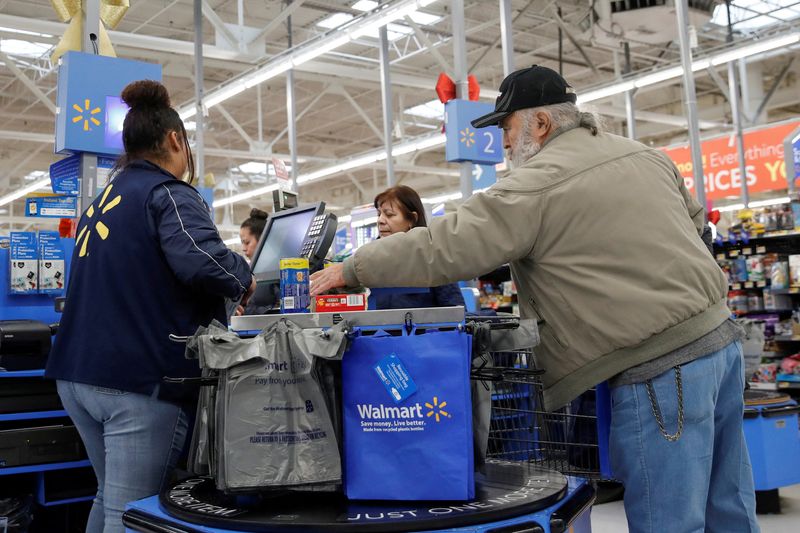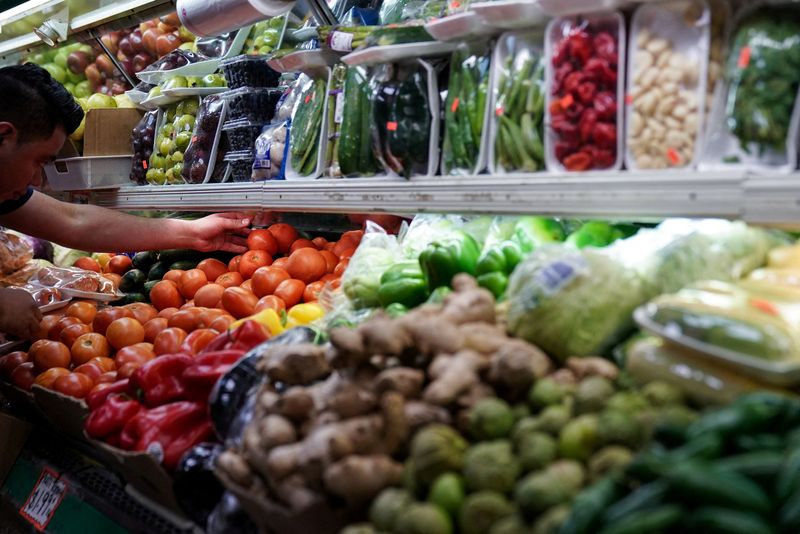(Reuters) -U.S. consumer sentiment perked up much more than expected in December, snapping four straight months of declines, as households saw inflation pressures easing, a development likely to be welcomed by Federal Reserve officials, a survey showed on Friday.
The University of Michigan's preliminary reading of its Consumer Sentiment Index shot up to 69.4, the highest since August, from November's final reading of 61.3.
The median expectation among economists in a Reuters poll had been for the index to edge up to 62.0.
"Consumer sentiment soared 13% in December, erasing all declines from the previous four months, primarily on the basis of improvements in the expected trajectory of inflation," survey Director Joanne Hsu said in a statement.
The survey's preliminary gauge of current conditions rose to 74.0 from last month's final level of 68.3, while the expectations index climbed to 66.4, the highest since July, from 56.8 in November.
Consumers' outlook for inflation in the year ahead plunged to 3.1% - the lowest since March 2021 - from November's final expectation of 4.5%. The 1.4 percentage point decline was the largest monthly drop in one-year inflation expectations in 22 years.
Over a five-year horizon, consumers expect inflation to average a three-month low of 2.8%, down from 3.2% in November, which had been the highest since March 2011, when it reached the same level.
Officials at the Fed, who have raised interest rates by 5.25 percentage points since March 2022 to lower inflation from four-decade highs, keep close tabs on consumers' attitudes about price trends.
They are keen to see inflation expectations trend lower so as not to alter consumption behavior that could reverse the gains they have made in slowing the pace of price increases.
The Fed meets next week for the last time this year and is expected to leave rates unchanged at 5.25% to 5.50% amid growing evidence that inflation pressures are subsiding.
Prices rose by 3.0% in the 12 months through October by the measure the central bank uses to set its inflation target of 2%. That is down from a peak in June 2022 of 7.1% and was the lowest since March 2021.
Thanks largely to persistent inflation, American households have held a broadly sour view of the U.S. economy and their own prospects ever since the COVID-19 pandemic struck in early 2020, even though overall employment is back to record highs, jobless rates are near historic lows, wages have been rising faster than before the health crisis, and overall economic growth has been running well above trend.

Researchers at the Federal Reserve Bank of Chicago recently examined this historic disconnect between strong labor market conditions and consumer and business sentiment.
"While part of these gaps appears to be driven by newly persistent pessimism after the COVID-19 recession in the U.S., consumer and small business sentiment are also clearly not reacting to strong labor market conditions in the same manner that they used to," research authors Jacob Herbstman and Scott Brave wrote.
